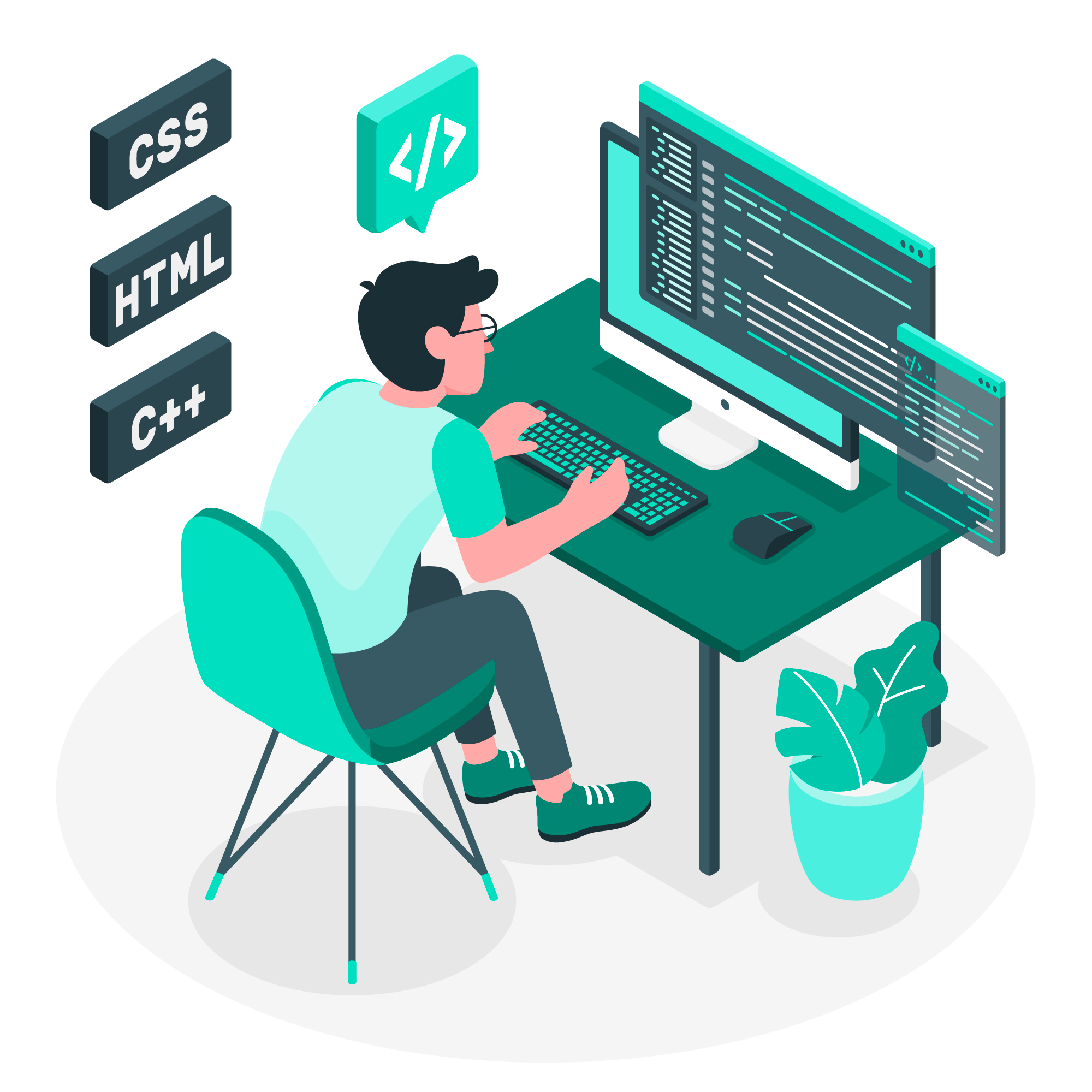CPP KeyAreas: Tips and Strategies for Developers
Introduction for CPP
CPP is a powerful programming language widely used for developing efficient and high-performance software applications. Mastering CPP requires dedication, practice, and a strategic approach to skill development. In this blog post, we’ll explore tips and strategies to help you become a proficient CPP programmer. Whether you’re a beginner starting your journey with CPP or an experienced developer looking to enhance your skills, these insights will guide you on the path to mastering this versatile language.
Get Familiar with the Basics
To master CPP, it’s essential to start by understanding the fundamentals of the language. Here are some key areas to focus on:
1. Variables and Data Types:
Begin by learning about variables and data types in CPP. Familiarize yourself with primitive data types such as integers, floating-point numbers, characters, and booleans. Understand how to declare variables, assign values, and perform basic operations on them.
2. Operators:
Explore the various operators in CPP, including arithmetic, assignment, comparison, logical, and bitwise operators. Learn how to use them to perform calculations, manipulate data, and make decisions in your code.
3. Control Structures:
Understand control structures such as if-else statements, loops (for, while, do-while), and switch-case statements. These structures allow you to control the flow of your program, make decisions based on conditions, and repeat certain blocks of code.
4. Functions:
Comprehend the concept of functions in CPP. Learn how to define functions, pass parameters, and return values. Functions are essential for organizing code into reusable modules and promoting code modularity.
5. Object-Oriented Programming (OOP) Concepts:
CPP is an object-oriented programming language, so it’s crucial to grasp the core concepts of OOP. Learn about classes, objects, inheritance, polymorphism, and encapsulation. Understand how to create classes, define member variables and member functions, create objects, and utilize inheritance to create hierarchies of classes.
6. Pointers and Memory Management:
Pointers are a powerful feature in CPP, enabling direct memory manipulation and efficient memory management. Learn about pointer syntax, pointer arithmetic, dynamic memory allocation (with new and delete operators), and smart pointers for safer memory management.
7. Exception Handling:
Exception handling is important for handling and recovering from runtime errors. Learn about try-catch blocks, throwing and catching exceptions, and creating custom exception classes to handle specific error scenarios.
8. Input and Output (I/O):
Understand how to perform input and output operations in CPP. Learn about standard input/output streams (cin and cout), file I/O operations, and formatting output using stream manipulators.
Learn CPP Standard Library and STL
To master CPP, it’s crucial to become familiar with the CPP Standard Library and the Standard Template Library (STL). These libraries provide a rich set of functionalities, data structures, and algorithms that simplify programming tasks. Here’s a breakdown of what to focus on:
a. CPP Standard Library:
The CPP Standard Library includes essential components such as containers, iterators, algorithms, input/output operations, and utility classes. Familiarize yourself with these key areas:
- Containers: Learn about various container classes like vectors, lists, queues, stacks, sets, maps, and more. Understand their properties, member functions, and usage scenarios. Practice working with these containers to store and manipulate data efficiently.
- Iterators: Explore iterators, which provide a generalized interface for traversing elements in a container. Learn about input iterators, output iterators, forward iterators, bidirectional iterators, and random access iterators. Understand how to use iterators to iterate over containers and perform operations on their elements.
- Algorithms: Dive into the range of algorithms available in the CPP Standard Library. These algorithms include sorting, searching, transforming, and manipulating data in containers. Study algorithms such as std::sort, std::find, std::transform, std::accumulate, and more. Practice using these algorithms in your code to perform common operations on containers efficiently.
- Input/Output (I/O): Explore the input/output facilities provided by the CPP Standard Library. Learn about stream classes like std::cin, std::cout, std::ifstream, std::ofstream, and std::stringstream. Understand how to read input from the user, write output to the console or files, and format input/output using manipulators.
- Utility Classes: Discover utility classes like std::pair, std::tuple, std::function, and std::algorithm. Understand how these classes can simplify certain programming tasks, provide generic functionalities, and enable code reusability.
b. Standard Template Library (STL):
The Standard Template Library (STL) is a collection of template classes and functions that extend the capabilities of the CPP Standard Library. The STL provides additional data structures and algorithms to facilitate common programming tasks. Focus on the following areas:
- Containers: Explore STL containers like std::vector, std::list, std::deque, std::queue, std::stack, std::set, std::map, and more. Understand the differences between STL containers and their counterparts in the CPP Standard Library. Practice using these containers to store and manipulate data efficiently.
- Algorithms: Study the additional algorithms available in the STL, such as std::next_permutation, std::partial_sort, std::merge, std::count_if, and more. These algorithms can be highly useful in solving complex problems efficiently. Practice applying these algorithms to various scenarios and understand their time and space complexity.
- Function Objects and Predicates: Learn about function objects and predicates in the STL. Function objects are classes that act as function-like entities and can be used with algorithms to provide customized behavior. Predicates are functions or function objects used to define conditions for certain operations, such as sorting or searching. Gain an understanding of how to create and use function objects and predicates effectively.
- Iterators: Deepen your knowledge of iterators in the STL and understand how they are used with STL algorithms and containers. Explore specialized iterators like std::back_inserter, std::front_inserter, and std::inserter to manipulate container elements efficiently.
Practice Coding Exercises and Projects
To master CPP, it’s crucial to engage in regular coding exercises and work on projects that allow you to apply your knowledge and enhance your skills. Here are some strategies to consider:
a. Start with Small Coding Exercises:
Begin by practicing small coding exercises that focus on specific concepts or algorithms. Platforms like LeetCode, HackerRank, and CodeSignal offer a wide range of coding challenges with varying difficulty levels. These exercises help improve your problem-solving skills, algorithmic thinking, and familiarity with CPP syntax.
b. Implement Data Structures and Algorithms:
Implementing common data structures and algorithms is an excellent way to deepen your understanding of CPP. Practice building data structures such as linked lists, stacks, queues, trees, graphs, and hash tables. Implement algorithms like sorting (e.g., bubble sort, insertion sort, merge sort), searching (e.g., binary search), and graph algorithms (e.g., breadth-first search, depth-first search).
c. Work on Mini Projects:
Undertake small projects that allow you to apply CPP concepts to real-world scenarios. For example, you could build a calculator, a simple text-based game, a file management system, or a basic chat application. These projects enable you to practice structuring code, implementing user interactions, and managing data efficiently.
d. Collaborate on Open-Source Projects:
Contributing to open-source projects exposes you to real-world codebases and collaborative development practices. Choose a CPP open-source project that aligns with your interests or addresses a problem you’re passionate about. Start with small tasks or bug fixes and gradually take on more significant contributions. Collaborating with experienced developers and receiving feedback on your code will greatly enhance your skills.
e. Build a Personal Portfolio:
Create a personal portfolio of CPP projects to showcase your skills and demonstrate your understanding of the language. This portfolio can include projects of varying complexity and scope. It not only serves as a valuable resource for potential employers but also reinforces your learning as you tackle diverse programming challenges.
f. Engage in Competitive Programming:
Competitive programming platforms like Codeforces, Topcoder, and AtCoder provide a platform for honing your CPP skills. Participate in coding competitions and challenges to solve problems within specified time limits. Competitive programming enhances your ability to think quickly, optimize code efficiency, and implement algorithms effectively.
g. Refactor and Improve Existing Code:
Take the opportunity to refactor and improve your existing code. Revisit old projects or coding exercises and find ways to enhance their efficiency, readability, and maintainability. Experiment with different design patterns, utilize modern CPP features and apply best practices to optimize your code.
h. Learn from Code Reviews and Mentorship:
Seek feedback on your code by engaging in code reviews with fellow CPP programmers or mentors. Code reviews provide valuable insights into improving your coding style, identifying potential issues, and learning alternative approaches. Actively participate in programming communities, forums, and discussion boards to receive feedback and learn from experienced developers.
Learn more about CPP from the reference: CPP-Wiki


 share
share share
share